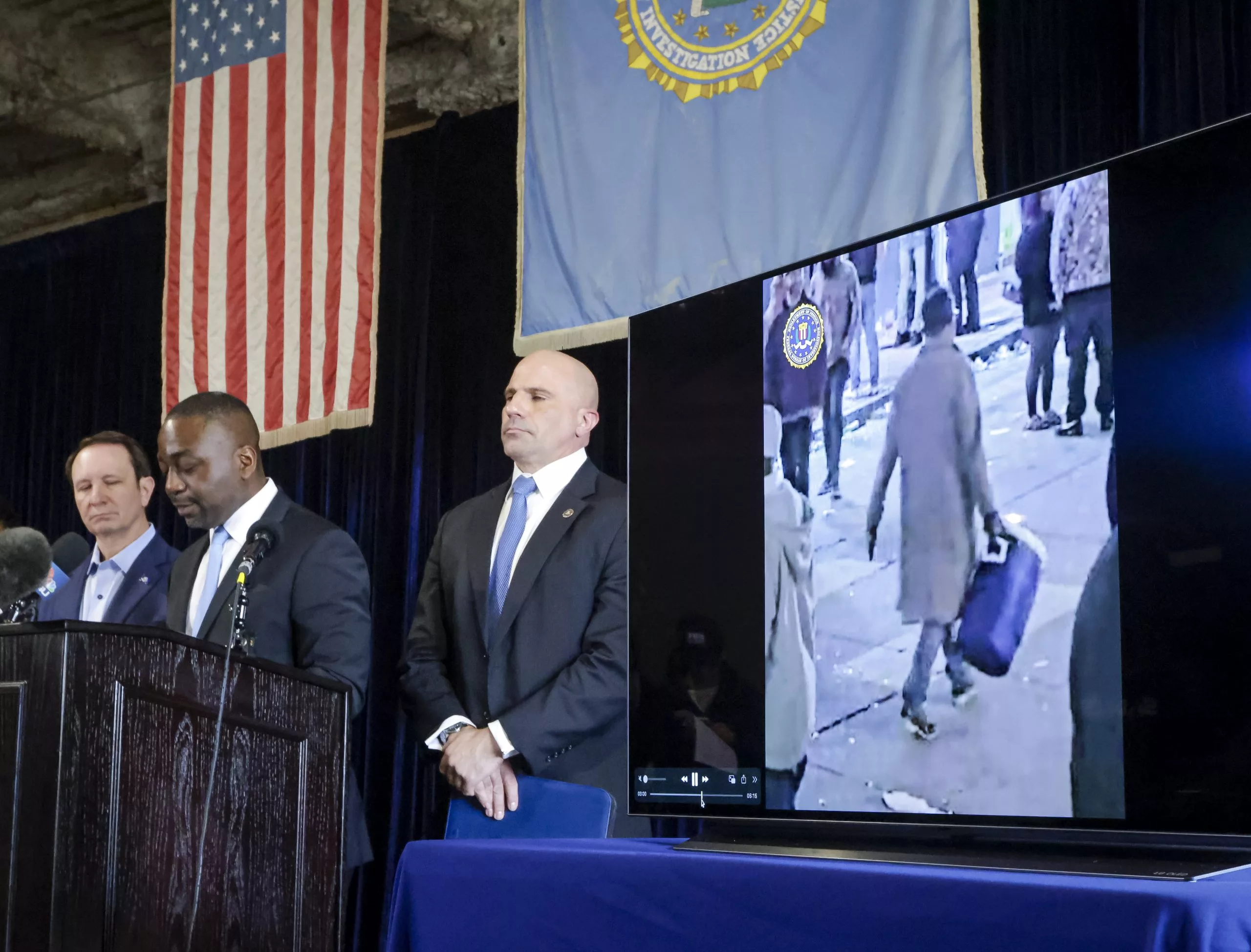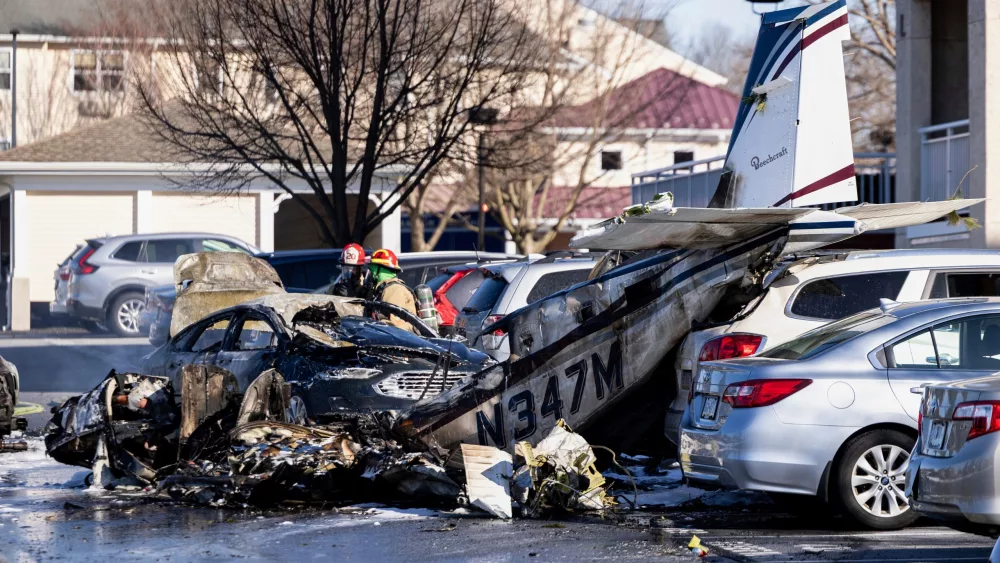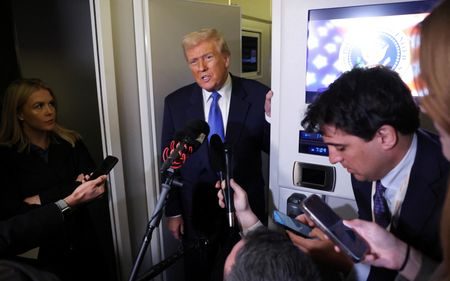WASHINGTON (AP) — Joining law enforcement officials to update the public in the hours after a man killed 14 people and injured dozens of others in New Orleans, Louisiana’s junior Republican senator, John Kennedy, implored the FBI to “catch these people” — and then added one more eyebrow-raising request of the federal government.
“After we get to the bottom of this,” he said, “they need to tell the American people the truth.”
The comment appeared to allude at least in part to an FBI official’s erroneous assertion hours earlier that the Bourbon Street rampage was “not a terrorist event,” a misstep the FBI tried to clean up with a follow-up statement that said the bureau was indeed investigating the Islamic State group-inspired attack as “an act of terrorism.”
But more broadly, the suggestion that federal officials might obscure the truth of the investigation, and Kennedy’s warning that he would “raise fresh hell” if they did, reflected the uneasy position the FBI had already found itself in by the time of last week’s attack: buffeted by suspicion and public criticism from lawmakers, especially allies of President-elect Donald Trump, and bracing for a leadership change expected to produce dramatic upheaval at the nation’s premier federal law enforcement agency.
“When the rubber meets the road, what really matters is that even in spite of all of this noise — and that’s all it is, is noise — the bureau goes about doing its job on a day-to-day basis,” said Frank Montoya Jr., a retired FBI counterintelligence executive.
The attack by Shamsud-Din Jabbar that killed 14 took place in the waning days of the Biden administration and just over two weeks before FBI Director Christopher Wray plans to resign his position to make way for Trump’s pick, Kash Patel. It follows a turbulent stretch in which the bureau has faced an escalating threat of international and domestic terrorism and has also been at at the center of politically explosive national security investigations involving both Trump and President Joe Biden that have put the FBI and Justice Department on the defensive and their decision-making under scrutiny.
The attack, the deadliest assault on U.S. soil in years inspired by the Islamic State group, is certain to make counterterrorism and national security core topics of discussion at Patel’s yet-to-be-scheduled confirmation hearing before the Senate Judiciary Committee.
A former Justice Department national security prosecutor, Patel has appeared repeatedly on podcasts before he was selected as director, where he’s spoken of his belief that the FBI needed a major overhaul. But he’s been less specific about how as director he would protect the homeland.
One area he has discussed is significant reforms on how agents and analysts make use of Foreign Intelligence Surveillance Act eavesdropping powers in national security investigations. He has spoken also of a desire to break out the FBI’s “intel shops” from the rest of its crime-fighting activities.
A person familiar with Patel’s positions who has sat in on his meetings with senators and who spoke to The Associated Press on condition of anonymity to discuss private conversations said Patel wants to ensure “there’s better intel-sharing across agencies” but is not calling for the elimination of spy powers.
The FBI has long characterized protecting the homeland from terrorist attack as its top priority, and Wray has been proactive in sounding the alarm about a rising threat inspired in part by the turmoil in the Middle East following the Oct. 7, 2023, attacks by Hamas on Israel.
And agents in recent months have successfully disrupted multiple plots, including the October arrest of an Afghan national accused of plotting an Election Day attack and charges weeks later against a Florida man said to be seeking to bomb the New York Stock Exchange.
Despite that run of success, there’s also no question that each action by the FBI is magnified at a time when its work and public statements are so intensely under the microscope as a result of politically charged investigations as well as the aftermath of controversial decisions, like a Justice Department memo directing the FBI to address threatening rhetoric at school board meetings and a since-withdrawn field office memo that warned of potential Catholic extremists.
Chris Piehota, a former executive assistant director of the FBI who retired in 2020, said he believed that the FBI had become “distracted” in recent years by “political and social agendas versus addressing the actual emerging threat environment.”
“Their priorities have not been properly set in my opinion,” said Piehota, author of a book titled: “Wanted: The FBI I Once Knew.”
In the case of Jabbar, the FBI was continuing to dig into his background but there was no immediate indication that agents missed any obvious red flags prior to the attack that could have thwarted it. Officials say he acted by himself, without any associates, and his path to radicalization — he has said he joined the Islamic State before last summer — appears to have been short.
Yet some imperfect communication on the first day did color public perception of the response.
Besides initially stating that the attack was not an act of terror, Alethea Duncan, an assistant special agent in charge in the New Orleans field office, said officials did not believe Jabbar had acted alone. A day later, the FBI said that upon further review it had concluded otherwise and that he had been in fact a solo actor.
“As soon as they found out that that wasn’t the case, they came out and they said, ‘That’s not the case,’” Montoya said. “And we can make a lot of inferences about that, but the fact of the matter is that’s how investigations go.”
Brought to you by www.srnnews.com






